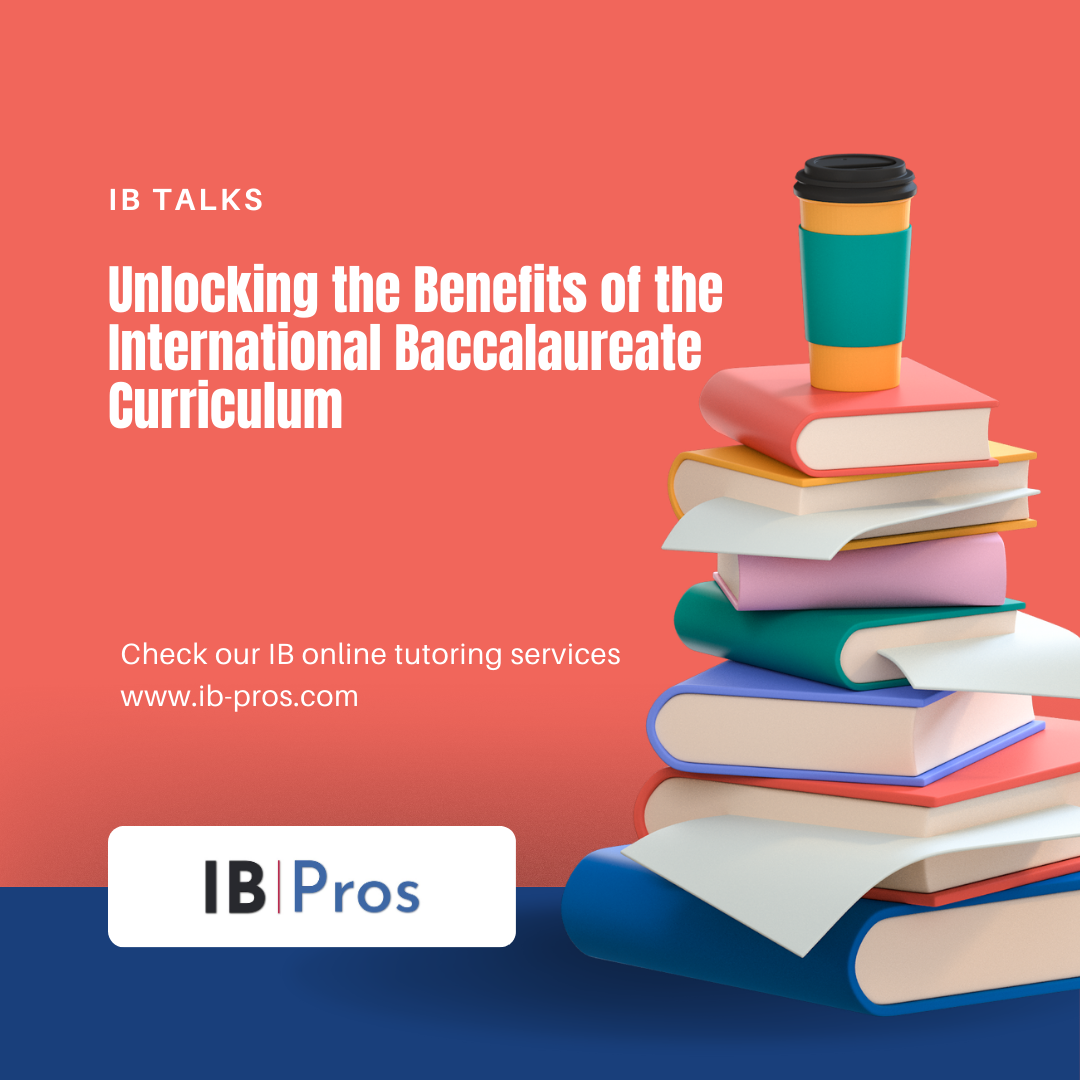
In an increasingly interconnected world, the International Baccalaureate (IB) curriculum stands as a beacon for comprehensive education, aiming to cultivate not only academically capable students but also well-rounded, global citizens. This educational framework, with its rigorous assessment methods and a strong emphasis on personal development, encourages learners to surpass traditional academic boundaries. As educators and policymakers alike seek innovative ways to prepare students for the complexities of the 21st century, the IB curriculum’s multifaceted approach offers a compelling alternative to conventional education systems. However, the true potential of this curriculum can only be fully realized by examining the extent to which it equips students for the challenges of university life and beyond, as well as its effectiveness in instilling the values necessary for navigating an ever-evolving global landscape. Join us as we explore the nuanced dimensions of the IB curriculum and consider its role in shaping the educational experiences of tomorrow’s leaders.
Key Takeaways
- The International Baccalaureate (IB) curriculum integrates academic rigor with personal development, emphasizing components such as Extended Essay, Theory of Knowledge, and Creativity, Activity, Service.
- The IB curriculum aims to cultivate global citizens by nurturing principles and skills for global citizenship, fostering interconnectedness and mutual respect, and integrating international-mindedness into all subjects.
- The IB curriculum encourages academic excellence by pushing students to their limits, emphasizing critical thinking and research, and using varied and demanding assessment methods.
- The IB curriculum emphasizes personal development alongside intellectual achievement, values personal growth and ethical understanding, and prepares students to navigate and contribute to diverse environments.
Comprehensive Educational Approach
Embracing a holistic philosophy, the International Baccalaureate (IB) curriculum fosters a comprehensive educational approach that integrates academic rigor with personal development. This multifaceted framework is designed to cultivate not only intellectual capabilities but also emotional and ethical competencies. The IB’s distinctive core components—the Extended Essay (EE), Theory of Knowledge (TOK), and Creativity, Activity, Service (CAS)—are instrumental in developing well-rounded individuals who can think critically and creatively, engage in lifelong learning, and participate as active, compassionate citizens.
The IB curriculum’s breadth and depth across subjects encourage learners to draw connections between various disciplines, promoting interdisciplinary understanding that mirrors the complexity of the real world. This encourages students to appreciate knowledge as an interlinked web rather than segregated silos. The program’s emphasis on inquiry-based learning and international-mindedness prepares students to navigate and contribute to an increasingly globalized society.
Furthermore, the IB’s assessment methods prioritize authentic tasks that reflect real-world challenges, ensuring that students are not merely tested on rote memorization but on the application of skills and the synthesis of knowledge. Such a comprehensive educational approach equips students with a robust academic foundation, critical thinking skills, and a heightened sense of social responsibility, positioning them for success in their future endeavors.
Cultivating Global Citizens
The International Baccalaureate curriculum is strategically designed to nurture the principles and skills essential for fostering global citizenship in its students. Embodying an education that transcends traditional academic boundaries, the IB program instils a sense of interconnectedness and mutual respect among young minds. Through its holistic approach, students are encouraged to think critically about complex global issues, understand diverse perspectives, and embrace cultural differences.
Central to the IB’s philosophy is the concept of intercultural understanding and respect. The curriculum provides a framework that integrates international-mindedness into every aspect of learning, from language acquisition to social studies, science, and the arts. Students are taught to appreciate their own culture and history while developing an empathy and openness towards other cultures and beliefs.
Moreover, the IB places strong emphasis on languages, enabling students to improve their communication skills and engage with the world in multiple tongues. The Theory of Knowledge (TOK) course further challenges students to reflect on the nature of knowledge and how it is constructed differently across cultures, thus preparing them to navigate an increasingly globalized society with discernment and responsibility. In essence, the IB curriculum is a conduit for shaping informed, thoughtful, and proactive global citizens ready to contribute positively to the international community.
Encouraging Academic Excellence
While fostering global citizenship, the International Baccalaureate (IB) curriculum also places a high premium on academic excellence, challenging students to excel across a broad range of disciplines. This rigorous program is designed to push students to their academic limits, instilling a deep understanding of subjects and an appreciation for learning that extends far beyond standardized tests.
The IB’s unique approach to education emphasizes critical thinking, research, and the synthesis of knowledge, equipping students with the tools necessary to tackle complex problems. Its assessment methods are varied and demanding, ensuring a comprehensive evaluation of a student’s capabilities.
To illustrate, consider the following table which highlights the emotional and academic growth witnessed in IB students:
Emotional DevelopmentAcademic AchievementEmpathy and understandingMastery of multiple subjectsResilience and determinationResearch and analytical skillsCultural awareness and open-mindednessEffective communication abilitiesSelf-regulation and motivationCreativity and innovation in problem-solving
These attributes not only foster academic excellence but also prepare students for success in a rapidly changing world. The IB curriculum’s commitment to academic rigor, combined with its emphasis on personal development, creates a transformative educational experience that shapes learners into well-rounded, knowledgeable, and compassionate individuals.
Emphasizing Personal Development
Beyond academic prowess, the International Baccalaureate (IB) curriculum places significant emphasis on personal development, nurturing the growth of well-rounded individuals equipped with the emotional intelligence necessary for success in all areas of life. This holistic approach is woven into the very fabric of the IB ethos, which values personal growth alongside intellectual achievement.
The IB’s core components, such as the Theory of Knowledge (TOK), Creativity, Activity, Service (CAS), and the Extended Essay (EE), are integral to fostering critical thinking, self-reflection, and ethical understanding. Students are encouraged to engage with complex global issues, cultivating a sense of empathy and social responsibility. This emphasis on personal development ensures that IB learners are not only prepared for the rigors of higher education but also for the challenges of a rapidly changing world.
Moreover, the IB learner profile, with its ten attributes including inquirers, knowledgeable, thinkers, communicators, and principled, serves as a guide for students to become responsible members of local and global communities. The curriculum’s focus on intercultural awareness and communication skills further prepares students to navigate and contribute to diverse environments effectively.
In essence, the IB curriculum’s commitment to personal development is about shaping individuals who are self-aware, resilient, and adaptable – qualities that are indispensable in today’s interconnected and dynamic society.
Preparing for University and Beyond
Building on its holistic approach to personal development, the International Baccalaureate (IB) curriculum also equips students with the necessary skills and knowledge to excel in higher education and their subsequent professional endeavors. The rigorous academic standards and the unique learning philosophy of the IB not only foster intellectual curiosity but also instill a strong sense of global citizenship and responsibility. These attributes are increasingly sought after in the dynamic and interconnected world of higher education and beyond.
The International Baccalaureate curriculum prepares students for the future by:
- Cultivating Critical Thinking: Encouraging students to question, analyze, and evaluate – skills that are paramount for success in university research and discourse.
- Encouraging Independent Learning: Fostering self-motivated scholars, ready to take charge of their education and future career paths.
- Developing Time Management: Equipping learners to navigate rigorous coursework and deadlines, a direct parallel to university expectations.
- Promoting Intercultural Understanding: Preparing students to thrive in diverse environments and to connect with peers from various backgrounds in our globalized society.
Through these components, the IB creates a transformative educational experience that resonates deeply with both the intellectual and emotional facets of student growth, laying a profound foundation for lifelong success.
Frequently Asked Questions
How Does the International Baccalaureate Curriculum Accommodate Students With Special Educational Needs or Learning Disabilities?
The International Baccalaureate (IB) curriculum provides accommodations for students with special educational needs or learning disabilities through tailored support and individualized education plans. This includes adjustments to assessment methods, personalized teaching strategies, and access to necessary resources. The IB’s inclusive philosophy ensures that all students receive equitable educational opportunities, allowing them to maximize their potential within the rigorous academic framework of the IB program.
What Are the Cost Implications for Families When Choosing an IB Program Over Other Curriculums?
Choosing an International Baccalaureate (IB) program often entails higher costs for families compared to other curriculums. These expenses can include higher tuition fees, costs for purchasing course materials, and fees for assessments and examinations. Additionally, since IB schools can be less prevalent, there may be added costs associated with transportation or relocation. Parents should carefully evaluate the financial implications alongside the educational advantages when considering this globally recognized education program for their children.
How Is Technology Integrated Into the IB Curriculum, and How Does It Prepare Students for the Digital Age?
The International Baccalaureate (IB) curriculum integrates technology comprehensively, fostering digital literacy and critical thinking. By embedding technology in coursework and encouraging innovative pedagogies, students develop proficiency with digital tools. This approach ensures IB graduates are well-prepared for the digital economy, equipping them with the skills to adapt to technological advancements and to thrive in an increasingly digitalized world, thus aligning with the demands of the 21st-century workplace.
Are There Any Notable Differences in How Sports and Extracurricular Activities Are Handled Within the IB Curriculum Compared to Other Educational Systems?
The International Baccalaureate (IB) curriculum emphasizes a holistic approach to education, which includes a strong focus on sports and extracurricular activities. This approach differs from other educational systems by integrating these activities within the Creativity, Activity, Service (CAS) component, a core requirement of the IB Diploma Programme. CAS encourages personal and interpersonal development through experiential learning, a contrast to systems with a more compartmentalized view of extracurricular pursuits.
Can Students Transfer Into or Out of the IB Program Mid-Education, and How Is Their Prior Learning Assessed or Integrated?
Students can transfer into or out of the IB program during their education. The process involves a thorough assessment of the student’s previous academic record to ensure compatibility with the IB’s rigorous standards. Recognized prior learning is integrated to maintain educational continuity. This tailored approach enables a smooth transition, allowing students to benefit from or continue their education in different systems without significant disruption to their academic progression.
Conclusion
In conclusion, the International Baccalaureate curriculum stands as a robust educational framework that fosters comprehensive knowledge, global understanding, and personal growth. By emphasizing academic rigor alongside character development, it prepares students for the multifaceted challenges of higher education and the global workplace. The program’s dedication to cultivating well-rounded individuals ensures that its graduates are equipped with the intellectual and ethical tools necessary to contribute positively to an ever-evolving world.

